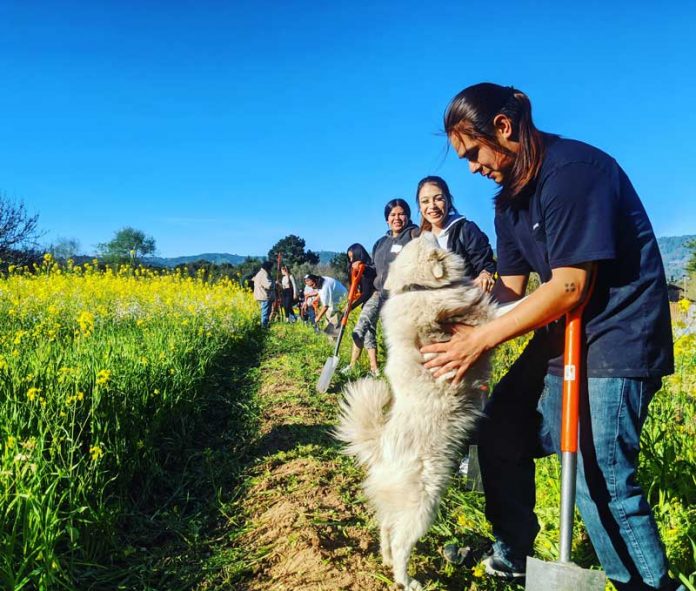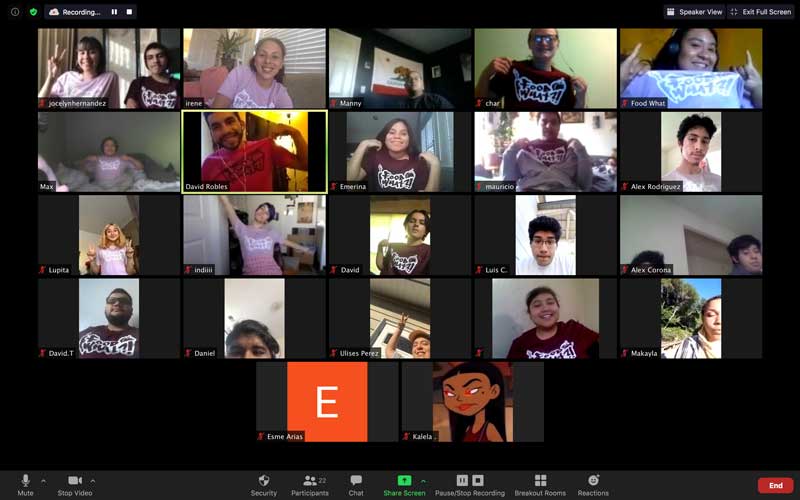
SANTA CRUZ COUNTY—Founder and executive director of FoodWhat Doron Comerchero said he is constantly impressed by the strength and resilience of the young people his organization serves.
The food justice nonprofit announced on July 30 the allocation of $80,000 for those currently enrolled in its programs. Each of the 80 youth and their families are receiving $1,000 through FoodWhat’s Youth Resilience Fund.
“One young woman said to me, ‘I wanted to get stuff for myself, but my family always comes first,’” Comerchero said. “I think that reminds us that youth are essential members of their families. They take care of siblings, contribute economically, support their parents to find resources. They play a central role in the household.”
The money was raised in just over a month with partnership from Community Foundation Santa Cruz County and many other local individuals, who would usually donate during the organization’s annual benefit dinner in September. Due to Covid-19 the event is canceled, but FoodWhat staff knew that support would be even more vital this year. So instead of raising money for the organization, they decided to move 100% of the funds directly to the families.
“As we moved through Spring… we stayed in touch with our [youth] through email, text and calling,” Comerchero said. “There was this constant narrative of strain on their economic, social and mental health. They weren’t able to keep their jobs… and summer was approaching. We knew it would be incredibly difficult for them.”

Founded in 2007, FoodWhat serves local low-income and resilient teens to engage in relationships with sustainable farming, food and each other in ways that are grounded in love and rooted in justice. It focuses on three primary areas: health, job training and personal growth. Teens who participate in the year-round programs can earn school credit and a paycheck.
The ongoing pandemic has not halted FoodWhat’s programming. Last week the organization wrapped up its Summer Job Training program, where members worked three days per week for $15 an hour. Summer youth participated over Zoom in gardening instruction at home with 5-gallon bucket gardens that FoodWhat dropped off at each of their homes. They also jumped on Zoom for weekly workshops and cooking sessions to make dinner for their families made with a kit of ingredients including a bountiful CSA share from the farm, delivered to their homes.
“We heard [from young people] that having a commitment to growing something, especially something that could help their families, gave them a sense of success and accomplishment,” Comerchero said. “And staying connected, too… The heart of FoodWhat is connection—through food, land, community, love. Our challenge this year has been how we can offer this in new ways.”
Comerchero said that while the Youth Resilience Fund will indeed help its participants and their families, there is a long road ahead. Staff is currently leveraging its resources as another wave of the pandemic hits the Central Coast.
“This is still the beginning,” he said. “It’s very difficult to look ahead right now. We have to ground ourselves to each week, day, moment. Looking into the next growing season… our work will be rooted in what is happening then.”
For information and to donate to FoodWhat visit foodwhat.org.












